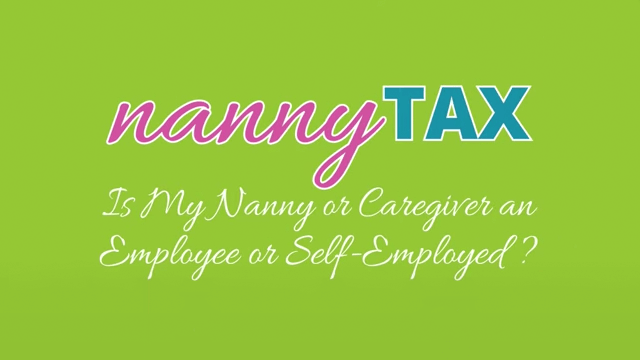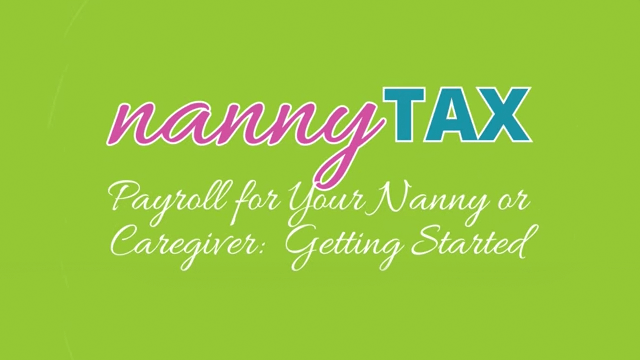
5 Tips for Managing Caregiver Stress
If you’re a caregiver to young children and/or aging parents, your responsibilities and demands are stressful even at the best of times. But as cases of the Omicron variant of COVID continue to climb across Canada, with some provinces tightening restrictions, many caregivers are feeling even more anxiety as they struggle to keep young ones busy while keeping elders safe, and managing their own waning mental health.
At NannyTax, we understand these stresses both personally and professionally across the different families we help support.
Here are some strategies to help you cope.
1. Get Outside
Many studies have shown that being in nature can help relieve the negative effects of stress and anxiety. And we’re lucky that Canada has an abundance of parks within a reasonable distance of most areas. You may find it helpful to spend some of your time outdoors with your kids and some of your time alone (or maybe with just the dog).
Some great suggestions from Ontarioparks.com for spending time outdoors include:
- Take a walk in the woods and try forest bathing:
Find a forested area near you and follow the trail until you are fully surrounded by nature. Then stop and close your eyes. With your eyes closed, engage your senses. Listen to the sounds, really feel the ground beneath your feet, breathe in the forest air, and feel the air moving across your skin. Take note of your mood. What’s on your mind? Can you try to let those thoughts go, even briefly, as you immerse yourself in the moment? As you continue your walk, be conscious of every step and your connection to the earth. Then stop at another spot and close your eyes again, repeating the process of engaging your senses. You will be amazed at how this activity can help your mind reset.
You can find a list of national parks here but you can also search your province for provincial parks. https://www.pc.gc.ca/en/pn-np/recherche-parcs-parks-search
- Move your workout outdoors (if you haven’t already):
If you’re not a fan of the cold in the winter, this may not be for you until the spring. But if you have or are willing to invest in the right outdoor clothing (warm layers, gloves, footwear, etc.), you may be surprised at how much you may come to enjoy walking, jogging, or snowshoeing when the temperature isn’t ridiculously low.
And here is another idea:
- Meet up with a friend for a walk instead of for coffee
This has the extra benefit of helping you get a few extra steps in your day, especially since many of us spend too much time sitting, which can create all types of other health issues. Being in nature combined with building positive social bonds can amplify the benefits of being outdoors. This is a perfect way to catch up with friends. Try it a few times a week for at least 10 minutes each time. You can also encourage your teenage children to do the same with their friends. This article from webmd.com provides more suggestions for making the most of the experience of walking with friends. https://www.webmd.com/fitness-exercise/mental-benefits-of-walking#1
2. Make a Little Time for Self-Care
Small steps towards self-care don’t have to be time-consuming or expensive. As much as we may all love a day at the spa or a weekend getaway at a resort, this isn’t always possible and is generally not recommended during the current COVID situation. So what can you do to bring a little bit of that experience into your everyday life?
Simply taking a few extra minutes for yourself as part of your morning or evening personal care routine can make you feel better in the moment and have some cumulative benefits.
Some suggestions include:
- If you typically just wash and go in the morning, consider adding a facial serum or moisturizer targeted to your skin’s needs. Even small gestures of pampering can help lift your spirits (and maybe even your skin!).
- If you have extra dry skin on your hands or feet, try using a heavier moisturizer at night to wake up with softer skin.
- There are many different types of at-home masks (across all price points) for the face and eyes available at pharmacies and specialty beauty stores. Try something new and take 15 minutes to relax as the mask works its ingredients into your skin.
3. Get Your Body Moving
You’re most likely already aware that even low-impact, moderate exercise when done regularly, can promote significant benefits for your physical health. From weight control, mitigating menopausal symptoms, lowering blood pressure and the risk of certain types of cancer, and even perhaps warding off dementia, exercise is a disease management/prevention all-star.
But did you know that exercise can also help with mental health? Exercise decreases stress hormones such as cortisol and releases endorphins, which help boost your mood.
It can help as part of a treatment plan to manage a range of mental health issues, including anxiety and stress, depression, and panic disorder, among others.
If you’re already exercising, keep it up! If you’re not yet on a regular schedule and don’t know where to start, verywellmind.com further explains exercise’s role in managing your mental health with guidelines on types of exercise and how to take the first step.
https://www.verywellmind.com/physical-exercise-for-panic-disorder-and-anxiety-2584094
4. Get Support
When you’re feeling isolated and alone in dealing with your stress, having someone around who will listen can make a world of difference. Sometimes that person can be another family member, friend, or colleague. If you have that network, don’t be shy to reach out and ask for support. If you don’t or if you feel like you need professional help, there are now a greater range of accessible and flexible options available.
If it saves you time by not leaving the house (or if COVID makes it harder to do so), you can consider virtual therapists who provide options for phone, video, or text-based style counseling. Cbc.ca provides an overview of how to get started and how to find the right provider. https://www.cbc.ca/life/wellness/virtual-therapy-how-to-find-the-online-mental-health-care-provider-that-s-right-for-you-1.5551424
5. Offload Some of Your Tasks/Chores
Know that it’s ok not to do it all. You don’t need to try to handle the management of all your household chores and finances alone. Consider what you enjoy doing, what you wish someone else could do, and where your time is best spent.
- For example, hiring housekeeping services may seem expensive but if you dread cleaning each week, is the cost a reasonable trade-off for your time and emotional well-being? If the cost is too much for your budget on a regular basis, then you can consider it less frequently for a more thorough cleaning. It will still be one thing less for you to worry about when you’ve got more pressing caregiver matters with your kids and parents. Or maybe you love cleaning and find it to be a good way to de-stress. If that’s the case, then this is not a task you’d want to outsource.
- Do you tend to shop at multiple stores for your weekly groceries? If shopping is a source of stress for you or it’s simply taking up too much time, then consider shopping online and having your groceries delivered or prepared for pick up. Even if it may take more time the first time you place an order, being able to repeat orders based on your history will save you a lot of time going forward. If you do this for even one of the multiple stores you shop at, you will end up saving significant time (and likely money too as we tend to be less impulsive when shopping online). Shopping online is also good practice during the pandemic.
- If trying to come up with meal ideas creates extra anxiety, then meal kits may be an option for you. Since the COVID-19 pandemic began, many families have found themselves challenged with coming up with what to make for lunch and dinner, meal after meal… after meal. But it’s not always easy to find a service that caters to different dietary needs. If you’ve had trouble finding a meal kit that offers kosher or halal food, you’re not alone. Though still limited, check out this link from mealkitscanada for a summary of kosher and halal meal delivery options. https://mealkitscanada.ca/kosher-and-halal-meal-delivery-in-canada/
- And when it comes to domestic payroll, if you have a nanny or caregiver, we can help relieve you of all the work that goes into preparing your payroll taxes properly, which could even save you money.
You’re not alone in feeling caregiver stress. Help is available through support (via your social network or professionals) but also through offloading things from your overflowing plate of demands. Give yourself the permission to take the time you need to reset and recharge or to spend a bit of money where the return on your well-being outweighs the cost. Because you can only be a caregiver to someone else when you’re taken care of first.










